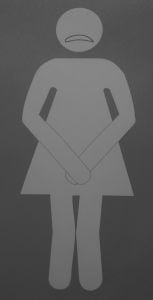In a report published by the New England Journal of Medicine, Dr. Anthony Lembro estimates that as many as 27 percent of all people in the United States suffer from chronic constipation. This results in a $100 million laxative industry. However, chronic and mild constipation struggles can be easily addressed with these three simple ways to treat constipation.
Dietary Changes
The main cause of constipation is an improper diet. Making slight dietary changes can help end constipation as well as prevent future bouts with the problem. The National Digestive Diseases Information Clearinghouse (NDDIC) suggests that eating more fiber is the best way to treat constipation. Fiber can be found in most fruits and vegetables as well as whole grain foods like some bread, many cereals and oatmeal. The greatest amount of fiber is typically found in beans and legumes like lentils and black-eyed peas.
Fiber alone, however, cannot do all the work. Without a well-lubricated system, constipation will likely persist. Drink plenty of water or other nonalcoholic and caffeine-free drinks to ensure that everything begins to run smoothly again.
Shimmy and Shake
According to Dr. Rosalyn Carson-Dewitt of the Langone Medical Center, regular exercise can help reduce the risk of becoming constipated. Exercise can also help treat constipation instantly. The key to achieving instant results is to focus in on the lower abdomen. Imitate the movements of a belly dancer by wiggling those hips side to and all around. Try lying on your back and fluttering your feet in the air a few inches off the ground. These exercises work by forcing a lazy intestine to kick into action as the abdominal muscles massage it. The best part about using these exercises to treat constipation is the fact that it is a very safe and natural approach. This technique can also be used for very young children struggling with constipation.
Medications
If you experience constipation only rarely, as the result of dietary changes, intermittent stress or hormonal changes, you can likely avoid using any medications to treat constipation. However, when bouts of constipation seem to be recurring, it may be time to bring in the reinforcements. The NDDIC suggests that over-the-counter laxatives should be used only when recommended by a physician to prevent a dependency. Alternately, stool softeners can often treat constipation without the resulting dependency or harsh side effects common with laxatives. Stool softeners simply make it easier to go when a hard stool is the cause of the problem. They do not actually cause a bowel movement.
If constipation becomes chronic, it is important to discuss this issue with a physician. Persistent and chronic constipation is not only uncomfortable; it can also result in colon cancer and be an indicator of a larger problem. There are several prescription medications available to treat constipation once the problem is properly assessed.





